
NBA ELECTIONS 2020 and Salaries of Young Lawyers | Adeke Aondongu Abel Esq, LL.M



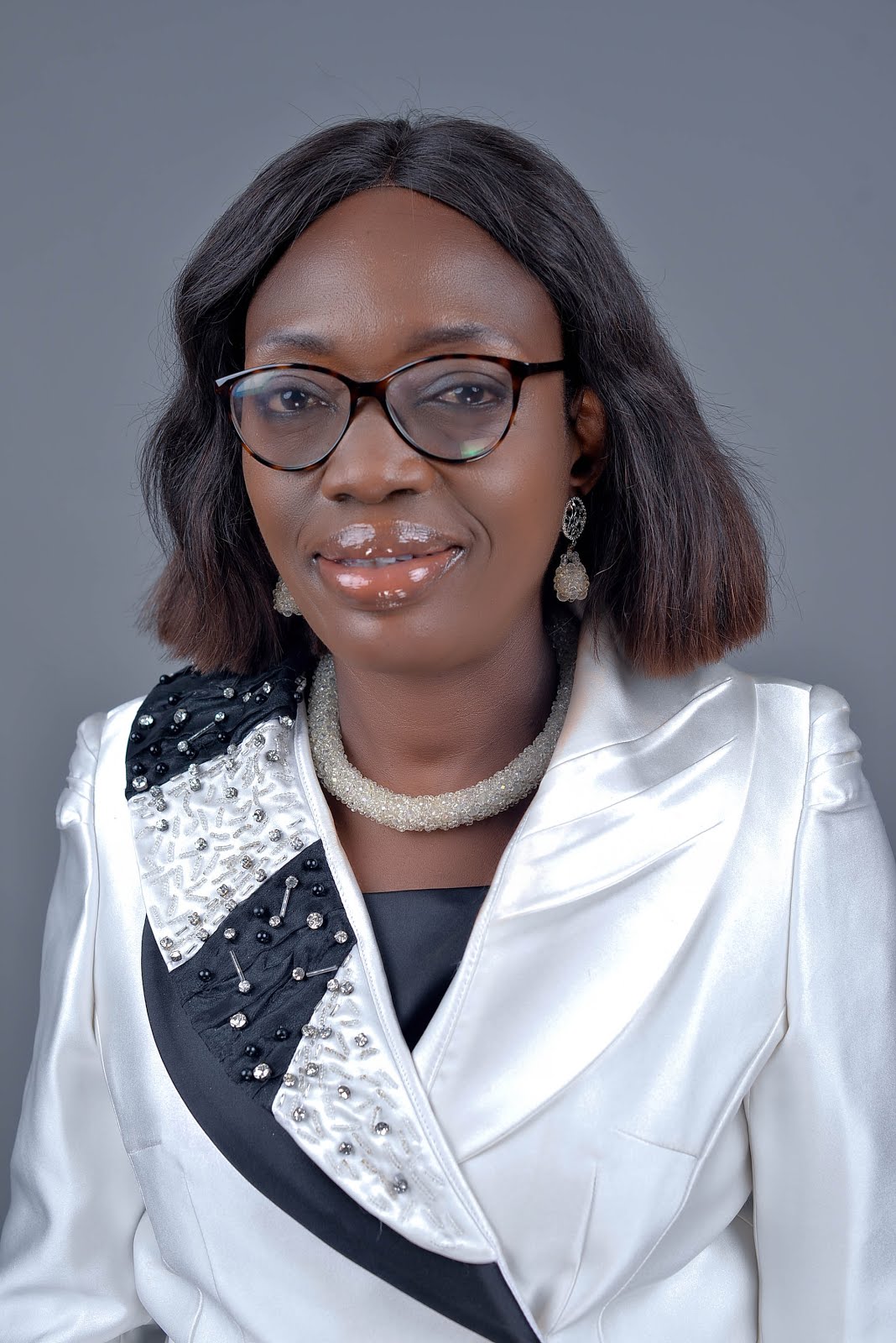

That brings me to the question, what is the role of lawyers in Nigeria today?
No doubt, Nigeria is experiencing pretty interesting times. Corruption and a lack of accountability have weakened the moral fabric of society and our economy is doing poorly. While this is ongoing, only few lawyers are paying attention while others are solely focused on their legal practice and pockets. When will lawyers realize that the downtrodden masses need their help, when will the lawyer summon up the courage to challenge government on its policies which are crippling us a people, when will he pursue reforms and march on the streets in a bid to secure the rights of his fellow Nigerian whom faith has put in his care.
Maybe the revelation will come to the Nigerian lawyer now and maybe not. However, if you are a lawyer reading this, WHEN WILL YOU COME TO NIGERIA’S AID?
Caroline Ibharuneafe
Past Vice – Chairman, NBA Ikeja
#integrity + accuracy


Similarly, Miss Uwaila Omozuwa, a young, ambitious, and determined lady was reportedly murdered on Wednesday, the 27th of May 2020, by a gang of boys who were said to have gang-raped her before her premeditated and callous murder. Uwa was until her untimely death a 100 level Microbiology student at the University of Benin. She was not murdered on the street, neither was she gang-raped at a club. Rather, she was raped and murdered right inside a church which even in a war situation is ordinarily a sanctuary and a safe haven.
The suspects of these multiple murders have been arrested by the Nigerian Police and are in Police custody. In the case of Uwa, the Investigation Team was able to arrest the suspect through the help of forensic examination with the screening of the fingerprints on the fire extinguisher allegedly used to smash the head of Uwa. This is commendable on the part of the men and officers of the Nigerian Police in Edo State. Also commendable is the fact that Uwa’s gruesome murder has attracted the personal attention of the President of this country and that of the Senate of the Federal Republic of Nigeria. A comprehensive investigation must not only lead to the arrest of other _particeps criminis_ of these crimes but more importantly, must lead to the formulation of creative strategy on how to prevent similar crimes in the future. A study of some National Dailies reveals several high degree crimes of this nature on a daily basis. The time has come for the Nigerian Police to step up their acts at crime prevention and detection. In the very words of Section 4 of the Police Act, the primary responsibility of the Police is *”the prevention and detection of crime, the apprehension of offenders, the preservation of law and order, the protection of life and property, and the due enforcement of all laws and regulations.”*
Let me seize this opportunity to make the point over and over again that the monolithic and centralised Police structure that we have in this country is no longer in a position to effectively and maximally maintain law and order or protect lives and properties. A monolithic and centralised Police structure such as we have notwithstanding our large and expansive land area, multi-cultural and multi-ethnic, highly diverse, and huge population can never be the best for an effective and efficient policing. If we want an efficient and effective Police system in this country, we must decentralise and have a Police system at every level of this federation. In other words, the case for State Police is again being emphasised in the interest of our nation.
Nothing buttresses this submission than the rate of crime and criminal activities through-out the Country and the creative and necessity-borne ideas at combating these acts of criminality and insecurities through the formation of one Operation or the other to complement the work of the Nigerian Police. Such creative efforts of government like Operation Delta Safe to protect critical national assets and to provide security in the Niger Delta; Operation Python Dance in the South-East to check kidnapping and other criminal activities; Operation Boyona set up to restore law and order in the North-East; Operation Crocodile Smile in the South-South to deal with criminal elements engaged in the vandalism of oil pipelines and installations; and, Operation Crocodile Smile IV to protect land, water channels and the creeks in the South-West to mention but a few are eloquent testimonies that the Police structure as presently constituted is unable to meet up with the enormous security and safety challenges of the Nation. Tt would be recalled that all these Operations are constituted by the military in conjunction with the Nigerian Police and other sister agencies.
Let me also stress that the time to pay enhanced attention to enforcing our law is now. The apprehension of offenders and appropriate sanction and punishment, when found guilty, is in itself a formidable deterrent to criminal actions. When law is not effectively enforced and when institutions of the state are weak, impunity reigns supreme, and lawlessness of various degrees take over. The Nigerian Police must undertake a comprehensive investigation of these multiple murders with a view to bringing all the suspects to justice. The souls of the deceased and their families deserve nothing less. May the Almighty strengthen the grieving families and bless the souls of UWA and IYIOHA.
*Dele Adesina SAN*


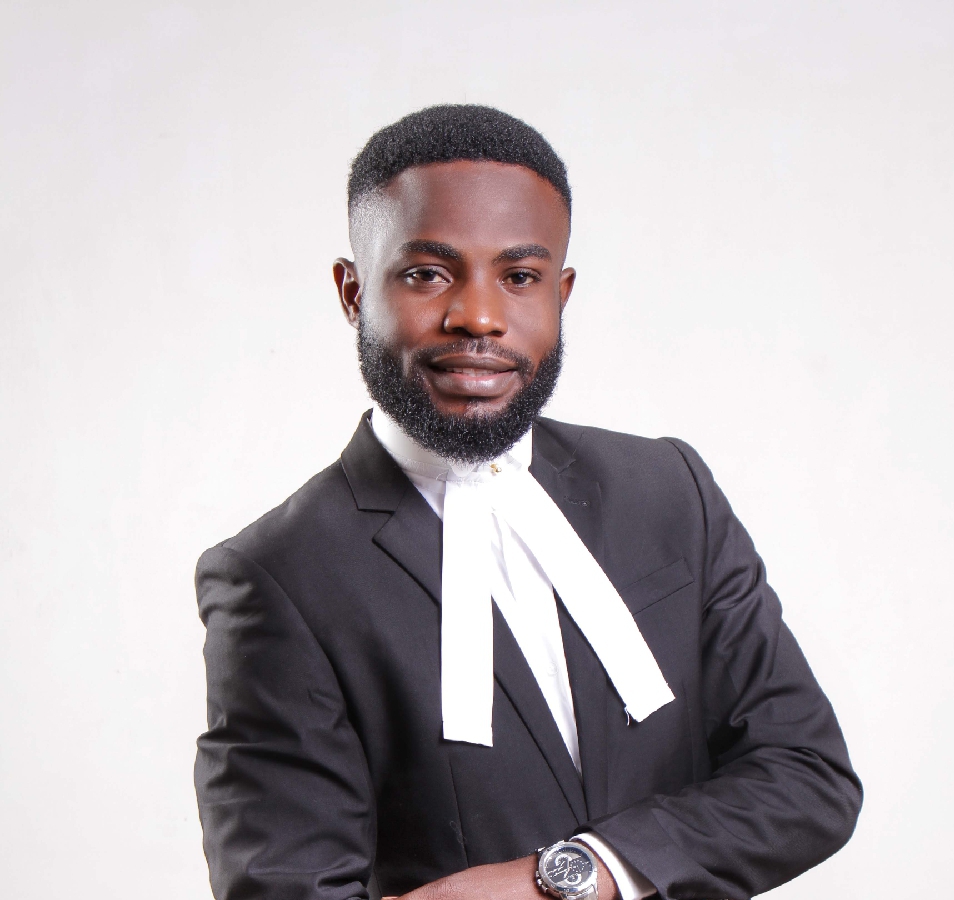

Tenants
are usually in a hurry to take possession of property without reading tenancy
agreement, thereby, becoming victims of onerous terms in the agreement. Average
tenants do not ask for tenancy agreement, while most property owners only issue
payment receipt and nothing more. In some cases, landlords increase rent
arbitrarily. On the other hand, some tenants derive pleasure in defacing rented
property (redesigning without landlord’s permission). Similarly, default in
payment of reserved rent on the part of tenant, usually necessitate illegal
eviction. Some of the cases are wrongfully taken to the Police Station instead
of the Court. These complexities give rise to protracted altercation and
assault between the landlords and tenants. This article avoids legalese and
explains everything about tenancy in clear terms.
TENANCY AGREEMENT/COVENANTS
Tenancy
agreement is very important. It provides clear terms and prevents unwarranted
possession of property after expiration of tenancy, and avoids arbitral
increase of rent. It is good for every property owner to prepare tenancy
agreement. Also, Tenants should not take possession of property without
demanding for tenancy agreement and endeavor to read it carefully.
There
is no particular form to write the agreement but a standard tenancy agreement
must contain; date, names and addresses of parties, rights and obligations or
covenants and witnesses.
NATURE OF TENANCY
Understanding
the types of tenancy is crucial because it helps the Landlord to calculate the
length of notice to quit and guide the Tenant properly.
Ø Periodic Tenancy:
Here the landlord and tenant agree on certain duration (commencement and
expiration date) but there is a springing interest which can only be brought to
an end by proper notice. This means that, even when the duration expires, the
tenant can renew it and continue possession and the landlord cannot evict the
tenant forcefully except with due process of law. This is the most common type
of tenancy in Nigeria. It can be ascertained by reference to time when rent is
paid or demanded.
Ø Fixed Tenancy:
Here there is a certain date to start and definite date to end tenancy. The
landlord can re-enter the premises and take possession by due process of law.
There is no automatic right to renew. Where a tenancy for a fixed term expires
but the tenant continues to occupy the property and neglects to deliver up
possession; such a tenant becomes a statutory tenant or a tenant at sufferance.
However, if the tenant pays rent at the amount agreed under the expired
tenancy, the tenant is deemed to be a periodic tenant on the same terms as the
expired tenancy.
Ø Statutory Tenancy:
This is when a Tenant continues in possession after expiration of
Fixed/Periodic Tenancy with the protection of law. In order to evict such
Tenant, the Landlord must follow due process of law. The Tenant will pay mesne profit (amount payable for the
period spent after the expiration of tenancy).
Ø Tenancy at Will:
Here the landlord permits another person to occupy premises without definite
agreement. The owner of the property or the tenant can terminate the tenancy
when any of them likes or at any time convenient. This type of tenancy occurs
where; (i) a person is allowed to occupy a property for an indefinite period
rent free, (ii) a purchaser of property has been let into possession pending
completion of purchase agreement, etc.
Ø Tenancy at Sufferance:
This type of tenancy is regulated by common law, it occurs when a Tenant
continue occupation after the expiration of tenancy. It is important to state
that, tenancy at sufferance is not operational in Nigeria; it has been replaced
by statutory tenancy.
Ø Tenancy by Estoppel:
The law will presume the relationship of Landlord and Tenant where a person let
out property and it is proven that the person has no title or interest in the
property. This is a simple way of holding runners/agents responsible for
letting out premises without title or interest.
Ø Service Tenancy/Service Occupant: Employer
can offer an accommodation to employee for no rent (service occupant). In some
cases the employer will demand a little amount of rent from the employee
(service tenant). Once employment terminates, the service occupant must give up
possession. However, a service tenant is entitled to at least seven days’
notice to quit.
Ø Licence:
Here the owner of property permits another to enter the land and perform
certain act which would otherwise be wrongful. It can be terminated by
revocation. The licensee is entitled to seven days’ notice to quit (notice of
revocation).
Sometimes,
the type of tenancy may not be expressly agreed by the parties, and it may be
difficult to ascertain the nature of tenancy. In such cases, the nature of
tenancy shall be determined by reference to the time when rent is paid or
demanded.
PART TWO explains everything about
termination of tenancy, length of notice to quit and how to recover property
without crisis.
Contact the Author:
Twitter:
@OkpiBernard
Email:
okpibernardadaafu@gmail.com
Phone:
+2349032116272
OKPI BERNARD ADAAFU (OBA)
ESQ
(LL.B, B.L, ACIArb, MCMC) is an Associate at KANU G. AGABI, SAN (CON) & ASSOCIATES, Abuja, Nigeria.
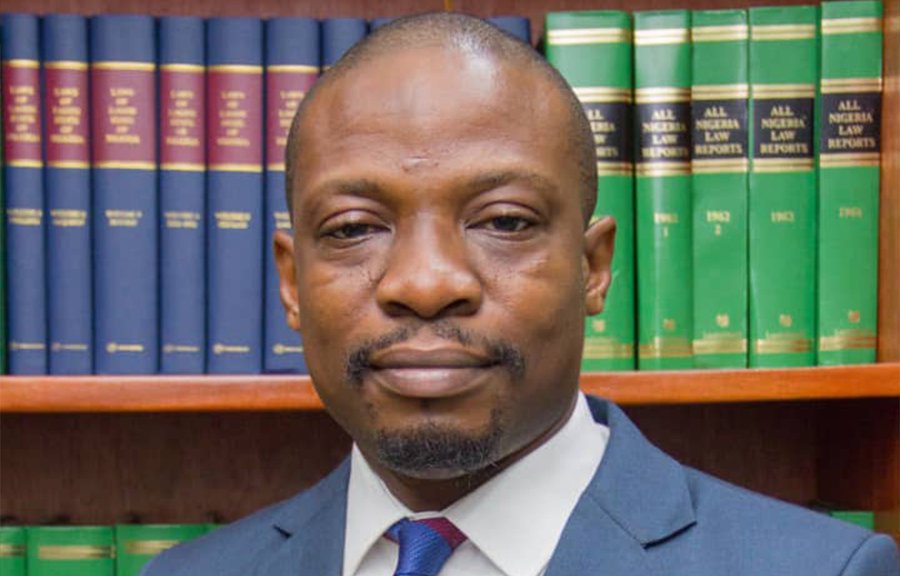

In Suit No. HCT/261/2020 filed on the 29th day of May 2020 by the law firm of Olumide Babalola LP pursuant you the provisions of the Nigeria Data Protection Regulation and Constitution, the Applicant prays for:
1. A DECLARATION that by virtue of article 1.1(a) of the Nigeria Data Protection Regulation (NDPR) 2019 data protection is guaranteed under right to privacy covered by section 37 of the Constitution of the Federal Republic of Nigeria, 1999 (As Amended).
2. A DECLARATION that the Respondent’s processing (i.e collection, storage, use etc) of personal data without a valid privacy policy is likely to interfere with the Applicant’s members’ fundamental rights to private and family life guaranteed under section 37 of Constitution of the Federal Republic of Nigeria, 1999 (As Amended).
3. A DECLARATION that the Respondent’s privacy policy violates the provision of article 2.5 (a),(g) and (h) of the Nigeria Data Protection Regulation (NDPR) 2019 and likely to interfere with the Applicant’s members fundamental right to private and family life guaranteed under section 37 of the Constitution.
4. A DECLARATION that the Respondent is liable to be fined by virtue of Regulation 2.10 of the Nigeria Data Protection Regulation 2019 (NDPR) to the tune of 2% of the Respondent’s Annual Gross Revenue of the preceding year or payment of the sum of 10 million Naira, whichever is greater for violating the provision of the NDPR for its violation of the Regulation.
5. AN ORDER mandating the Respondent to publish its privacy policy in full compliance with the Nigeria Data Protection Regulation 2019 on its website www.tiktok.com within 7 days from the delivery of judgment.
The suit is however yet to be assigned to any judge of the division.
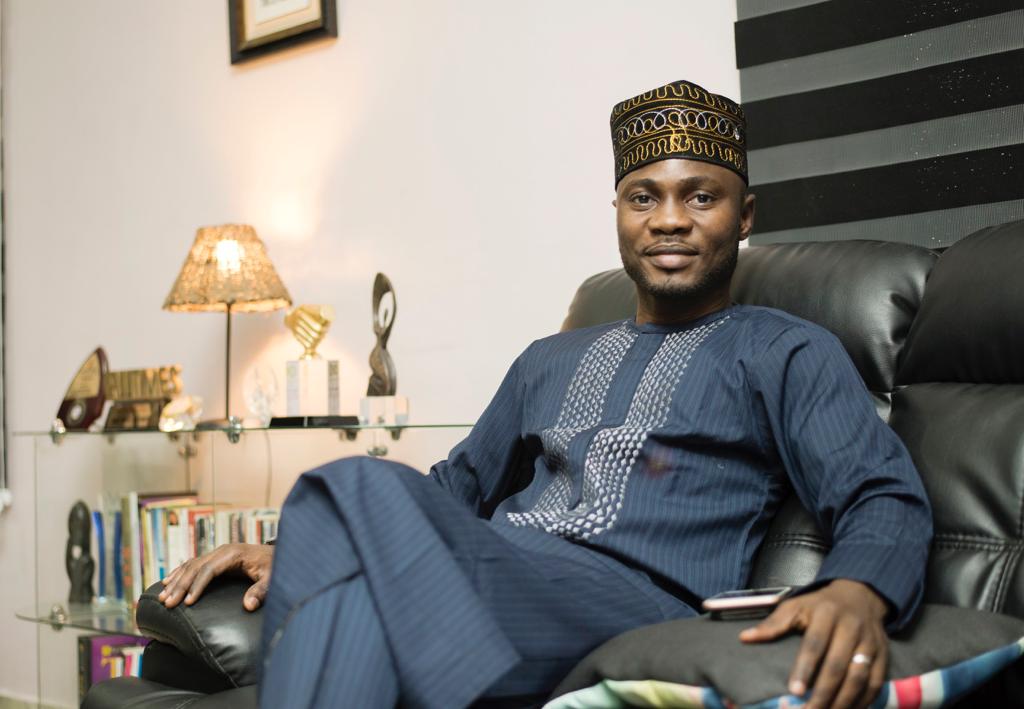

I have known him for over 10 years and I make bold to say that he is indeed a transformational servant leader and a tremendous blessing to the Nigerian Bar Association.
I served with him as Assistant Secretary of the NBA-YLF Ikeja Branch while he was the Chairman. His administration was a great success as he recorded a lot of milestones.
The NBA-YLF Ikeja Branch received more visibility and relevance during his tenure. He is a team player, a goal getter, a very hardworking and selfless person.
Charles Ajiboye is an Executive Partner at The Penthouse Law and presently the Publicity Secretary of the Nigerian Bar Association, Ikeja.
Charles has an uncommon way of solving problems and I can guarantee that his contribution as an executive of the Bar would be felt by all and sundry.
Undoubtedly, Charles Ajiboye is a mentor to a lot of lawyers within and outside his jurisdiction. He is a multiple award winning trailblazer as he commenced offering Digital Legal Services and has been able to carve a niche for his firm in the Automotive Industry amongst others, with several awards to his credit.
As part of his selfless services to humanity, he encourages and supports young people to thrive in their businesses. He replicated same within the legal industry by regularly giving tips and advice to lawyers on how to succeed and see law as a business. So many successful law firms in Nigeria can trace their foundation to him.
I encourage every lawyer who wants to get inspired to succeed to watch his YouTube videos (https://tinyurl.com/Charles-YouTube ) and participate in the Law as A Business Group (https://chat.whatsapp.com/Eu1WRliM8Ll8WVXOPEJYg9).
I am happy that he is offering to serve. He is the epitome of all the good a Lawyer should be and he stands tall as the model every Young lawyer should aspire for.
Charles Ajiboye,FICMC has my highest recommendation for his pursuit at the Nigerian Bar Association and I pray that by the special grace of God, he shall be elected as the National Assistant Publicity Secretary so that we all can understand why I speak this way.
Ezekiel Bodunde,Esq.
Chairman of the NBA-YLF Ikeja Branch.
Join Charles Ajiboye Friends group via this link –
https://chat.whatsapp.com/FnPjyi5moNh7llVrw1rp65
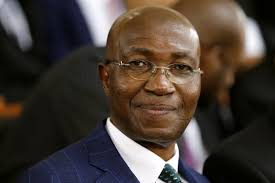

I don’t know any of the two lawyers. Is that also a Greek gift? For the past 15 years or so, I have steadily rendered quality assistance to the Lagos Branch of the NBA and successive Chairmen of the branch can attest to this. Perhaps, the sponsored write will also be described as a Greek gift.
My track record is in the public domain. I don’t want to join issues with anybody, but I know where that sponsored piece came from, a lecturer in the Nigerian Law School, who does not hail from any of the states in the South-West.
As a lecturer, one would have expected him to do a proper research before jumping to the fray. As for the criticism of Egbe, in respect of the adoption of Dele Adesina (SAN), this has been unfair and most uncharitable.
*Q. Why do you say this?*
*Ans:” At no time in the history of Egbe Amofin has the election of a consensus flagbearer been as democratic and painstaking as this one. This has been the only time that all the Branch Chairmen of all NBA Branches in the South West, all of them, without any exception were constituted into a committee to interface with, interview and pick a consensus candidate for the Egbe.
Between August, 2019 and February, 2020, four meetings were held by the Egbe, one in Lagos on 27/8/19, and three at Ibadan on 26/10/19, 9/11/19/ and 22/2/20. At the Lagos meeting, the unanimous resolution was that on no account would the Egbe sponsor two candidates, because of our experience of 2014.
At the Ibadan meeting of 26/10/19, Muyiwa Akinboro, SAN, Dele Adesina, SAN, Tunde Ajibade, SAN, and Awoniyi Alabi, all signified their intentions to contest the NBA presidency under the banner of the Egbe, with each of them solemnly pledging in the presence of all attendees numbering about 500 that he would abide by the decision of the Egbe. Muyiwa Akinboro is a former Chairman of the Abuja Branch and former National Secretary of the NBA. Dele Adesina is a former Chairman of Ikeja Branch and former National Secretary of the NBA.
Awoniyi is a former Chairman of Osogbo Branch and former Legal Adviser of the NBA. Both Akinboro and Adesina are life members of the NBA NEC. The meeting of 26/10/19 unanimously nominated Chief Niyi Akintola, SAN to co-ordinate the meetings and deliberations of the committee set up by the Egbe for the selection of a sole candidate.
In turn, each of the candidates stood up to express his satisfaction with the composition of the committee and the choice of Chief Niyi Akintola, SAN as the coordinator. The committee submitted its report at the meeting of 9/11/19, showing that over 80 percent of the Branches/Branch Chairmen endorsed the nomination of Dele Adesina, SAN, as the sole candidate.
The meeting of 9/11/19 would have been held a week earlier, but for the passionate plea of Tunde Ajibade, SAN who said that that date would not be convenient for him and we shifted the date of the meeting to 9/11/19, because of him. He did not attend the meeting of 9/11/19, but the report of the selection committee was ratified and adopted.
It was then decided that all the Branch Chairmen and the leaders should sign the adoption document for record purposes, and all the Chairmen signed, apart from the Chairman of Lagos who is neither supporting Dele Adesina nor Tunde Ajibade.
The elders, including Chief M.A Ajomole, former Chairman of the Body of Benchers, who will be 90 years later this year, Chief Mrs. Priscilla Kuye, former President of the NBA, Chief Emmanuel Abiodun, former Chairman of Ibadan Branch, Chief Gboyega Awomolo, SAN, former Chairman of the Committee of Chairmen and Secretaries of the NBA, Chief Felix Fagbohungbe, SAN, Chief Niyi Akintola, SAN and myself signed. It was also the decision of the meeting that all the other fora in the country be informed of the choice of Dele Adesina, SAN as the consensus candidate of the Egbe.
*Q*: *What is the grouse of those criticising the adoption process?*
*Ans*: I cannot honestly diagnose their grouse. I was one of the leading lawyers of the South-West who founded the Egbe in 1999 – the others were late Chief Debo Akande, SAN, late Chief Idowu Shofola, SAN, late Chief Dele Aiku, SAN, late Chief Adigun Ogunseyitan, and Chief Gboyega Awomolo, SAN. The Egbe adopted me as its candidate in 2002 and Rotimi Akeredolu, SAN, in 2008.
I can say with all sense of responsibility that the process put in place leading to the adoption of Dele Adesina, SAN has been more elaborate, democratic and painstaking. I understand that my beloved brother, Tunde Ajibade, SAN complained that the criteria used by the committee were not known to him, but I can recollect that at the meeting of 9/11/19, the committee was mandated to formulate its own criteria, taking cognisance of the criteria which had always been used by the Egbe, including experience, acceptability, national reach, positions earlier held within the NBA, etc.
Any candidate who had further ideas on the criteria to be adopted by the committee was advised to pass same to the committee. With respect to my beloved colleague and younger brother, Tunde Ajibade, SAN, his criticism of the Egbe is very hypocritical and also amounts to double talk.
The fact still remains that he wants to contest the presidency of the NBA simply because it is now the turn of the Southwest to produce the next President, based on a zoning arrangement initiated by the leaders of the Southwest and Southeast in 2000.
Or why did he not show interest in 2018 when it was the turn of the Southeast? Can he or any other person then be taking advantage of the turn of the Southwest and at the same time be pointing accusing fingers at the Egbe under which auspices he wants to contest? Now, was he taken into confidence before the President of the NBA, Mr. Paul Usoro constituted the membership of the Electoral Committee of the NBA (ECNBA) under the chairmanship of Mr. Tawo Tawo (SAN)? Did the ECNBA seek his consent before the choice of the ICT firm that will conduct the election? Did the NBA President discuss with him, or seek his consent before setting up the e- voting portal? Yet he wants to contest the election.
My appeal to him is that NBA elections must never be taken as a do-or-die affair as it happens out there in all the political parties in Nigeria. For example, I voluntarily stepped down for OCJ Okocha (SAN) in the year 2000, and I became the President of the NBA at God’s appointed time in 2002.
Some people are of the view that the Regional Fora are no longer relevant in the Bar because of the universal voting dispensation now at the Bar, what is your view on this?
Those who are peddling this suggestion should be reminded that it is a dangerous one which can be likened to a bizarre suggestion that the states and the six zones in Nigeria should be abolished. The different fora, through their branches gave birth to the NBA at the National level, and not the other way round.
On no account should any forum or the NBA generally disregard the decision of another forum, especially with regards to the choice of candidates particularly under a situation where all the Branch Chairmen in the South West, have signed and sealed the resolution that this is the choice of the South West.
It is the Southwest today, next time it will go to Arewa in the North and before you know it, it will be the turn of the South East; etc.
Excerpt from the interview granted by Chief Wole Olanipekun SAN and published by the Nation Newspapers on the 26 May, 2020.
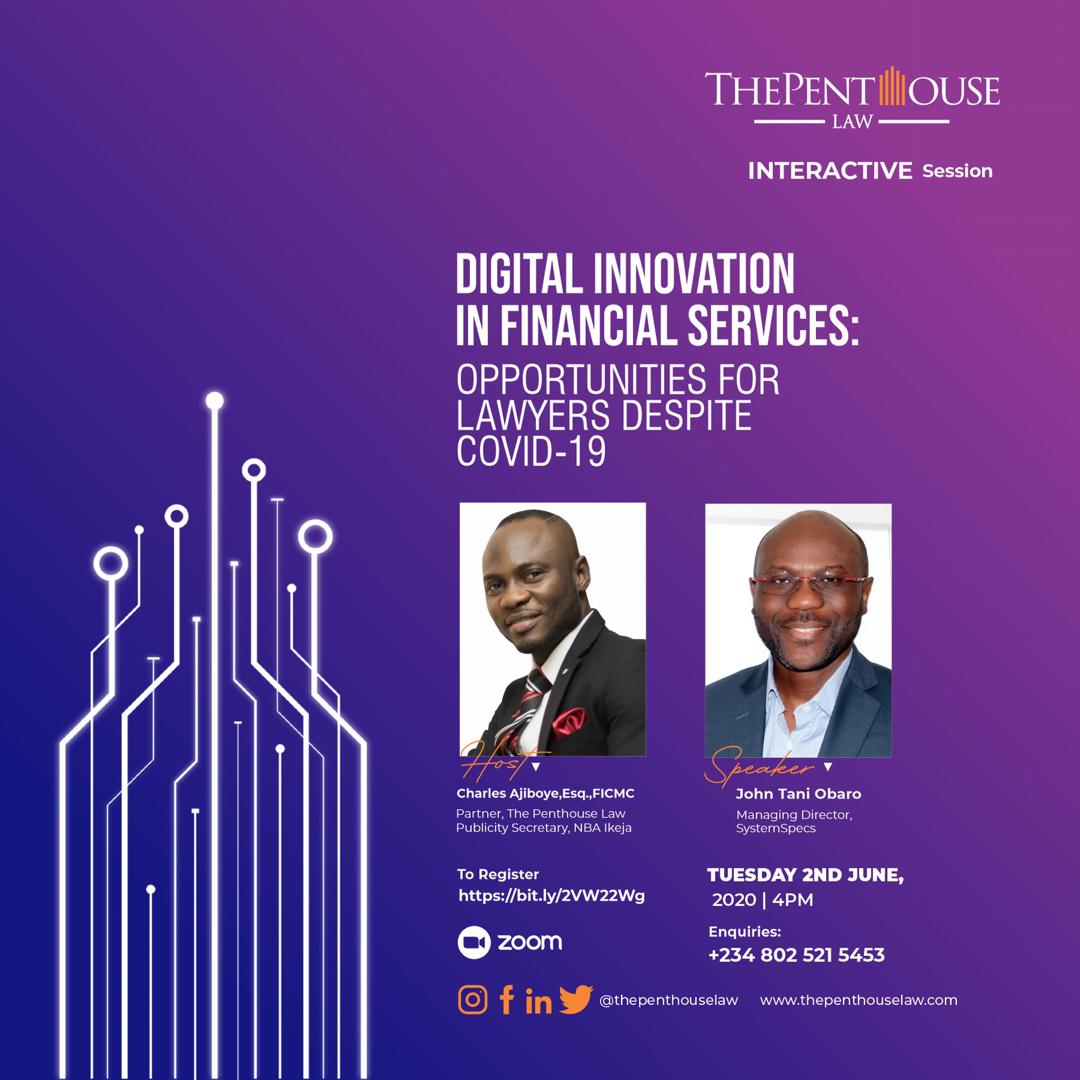

FINTECH is no longer an illusion, it is the new order. And the disruptions it is causing is massive.
There are huge opportunities in it for lawyers in the new normal. Join me at The Penthouse Law Interactive Session, where the Visionary CEO of the Billionaire SystemSpecs, John Tani Obaro will be sharing on the topic: *Digital Innovation In Financial Services: Opportunities for lawyers.*
Register here now IF you have never attended any of our sessions http://tinyurl.com/The-Penthouse-Sessions
Date is Tuesday, 2nd June 2020 on Zoom. It is wisdom for lawyers to begin to expand their horizons and carve a niche for themselves in emerging areas.
Please watch our previous sessions here http://tinyurl.com/Charles-Ajiboyes-Videos
My name is *Charles Ajiboye* and I just want us to succeed together.


#OBSCURELEGALFACTS BY AROME ABU
In Nigeria, except for defence of human life or public interest, it is an offence to kill a Lion, Leopard, Cheetah, Royal Python, Whale, Elephant, Vulture etc
PENALTY
N1,000,000 to 5,000,000 fine.
Section 5 of the Endangered Species Act 2016.
Arome Abu is the Principal Partner of TCLP.
CAVEAT: Note that this information is provided for general enlightenment purposes and is not intended to be any form of legal advice.
Obscure Legal Facts is an exclusive daily publication of THE COUNSEL L-P.
Plot 108 Idris Gidado
Way, Wuye, Abuja.
abuarome@gmail.com
+234 803 262 2359
+234 708 1156 539.
Twitter: @TheCounselLP